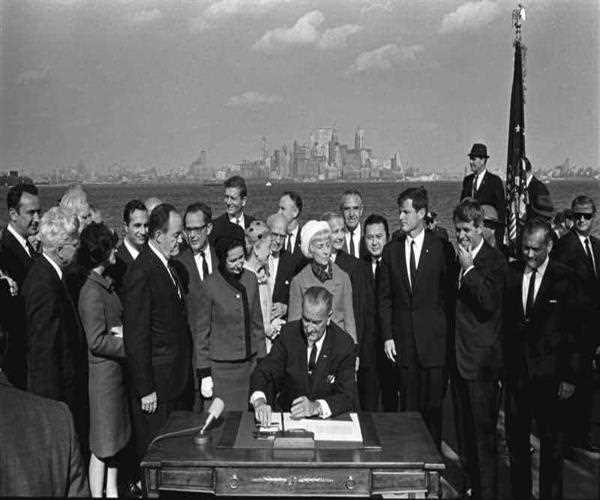*The Immigration and Naturalization Act of 1965*

The Immigration and Naturalization Act of 1965, otherwise called the Hart-Celler Act, canceled a prior portion framework in view of national source and set up another migration approach in light of rejoining outsider families and drawing in gifted work to the United States. Throughout the following four decades, the approaches put into impact in 1965 would extraordinarily change the statistic cosmetics of the American populace, as outsiders entering the United States under the new enactment came progressively from nations in Asia, Africa, and Latin America, rather than Europe.
IMMIGRATION AND NATURALIZATION ACT OF 1965
By the mid-1960s, calls to change U.S. migration strategy had mounted, thanks in no little part to the becoming stronger of the social liberties development. At the time, migration depended on the national-birthplaces amount framework set up since the 1920s, under which every nationality was appointed a standard in light of its portrayal in past U.S. statistics figures. The social liberties development's emphasis on measure up to treatment paying little mind to race or nationality drove numerous to see the portion framework as in reverse and prejudicial. Specifically, Greeks, Poles, Portuguese and Italians– of whom expanding numbers were trying to enter the U.S.– guaranteed that the quantity framework oppressed them for Northern Europeans. President John F. Kennedy even took up the movement change cause, giving a discourse in June 1963 calling the amount framework "insufferable."
After Kennedy's demise that November, Congress started debating and would inevitably pass the Immigration and Naturalization Act of 1965, co-supported by Senator Philip Hart of Michigan, Representative Emanuel Celler of New York and intensely bolstered by the late president's sibling, Senator Ted Kennedy of Massachusetts. Amid Congressional level-headed discussions, various specialists affirmed that little would successfully change under the improved enactment, and it was considered more to be a matter of guideline to have a more open approach. Without a doubt, on marking the demonstration into law in October 1965, President Lyndon B. Johnson expressed that the demonstration "isn't a progressive bill. It doesn't influence the lives of millions… .It won't reshape the structure of our everyday lives or add essentially to either our riches or our influence."
Cheers!